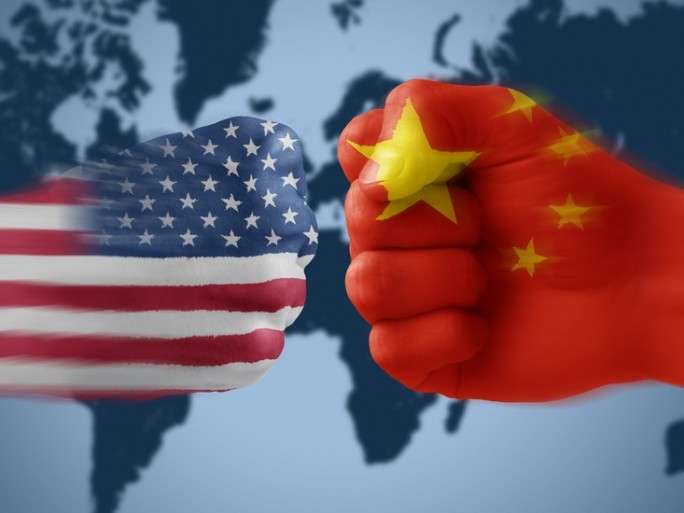President Joe Biden’s recent trip to Angola represents a pivotal moment in the global race for critical minerals, with the Lobito Corridor emerging as a cornerstone in Angola’s export infrastructure and a critical player in Africa’s broader mining landscape.
At the heart of Angola’s significance lies the Lobito Corridor, a critical export route that spans the mineral-rich region of Zambia and the Democratic Republic of Congo (DRC), extending to the port of Lobito.
Dr. Theo Acheampong, Head of Markets and Research at the Critical Minerals Africa Group has underscored the increasing collaboration between the US and Angola in the mining sector.
“We have seen data pointing to increased US-Angola collaboration in the critical minerals space.
“The Lobito Corridor plays a crucial role, transporting minerals from Zambia and the DRC to international markets, including the US. This visit cements bilateral relationships and aims to drive investment into Angola and neighboring regions.”
Dr. Theo Acheampong, Head of Markets and Research at the Critical Minerals Africa Group
President Biden’s visit also highlighted the growing interest of the United States in investing in Africa’s mining sector.
Historically, US investment in African mining has been limited, but the changing dynamics of global supply chains and the need for critical minerals have catalyzed a shift in strategy.
According to White House data, the US plans to invest $55 billion in Africa, with a significant portion earmarked for mining and related sectors.

Dr. Acheampong emphasized the importance of these investments, noting, “Traditionally, we haven’t seen significant US investment in African mining.”
“However, with the demand for green minerals such as lithium, copper, and cobalt, we are seeing increased investment flows.
“US companies are now focusing on exploration, mining, and processing projects to diversify supply chains away from other jurisdictions.”
Dr. Theo Acheampong, Head of Markets and Research at the Critical Minerals Africa Group
These investments are expected to strengthen Africa’s role as a critical supplier of the minerals needed for the global energy transition, while also fostering local beneficiation and value addition.
For Angola and other African nations, this marks an opportunity to move beyond the export of raw materials and build industries that process and add value to their natural resources.
A Counterweight to Chinese Dominance

Biden’s trip comes amid intensifying competition between the US and China for influence in Africa’s mining sector.
China has long dominated the critical minerals space on the continent, particularly in countries such as the DRC and Zambia, where it has invested heavily in cobalt and copper extraction.
These minerals are indispensable for the production of batteries, electric vehicles, and other green technologies.
“China is the big player in African mining, particularly in the cobalt and copper sectors of Zambia and the DRC.
“However, the US and its allies are now looking to secure a foothold by emphasizing responsible mining practices and ethical supply chains.”
Dr. Theo Acheampong, Head of Markets and Research at the Critical Minerals Africa Group
The US is banking on its promise of sustainable and transparent operations to differentiate itself from China.
By ensuring adherence to international labor and environmental standards, the US hopes to position itself as a partner of choice for African nations, which have long grappled with exploitative practices in their resource sectors.
One of the key messages of Biden’s visit is the US commitment to sustainable and ethical mining practices.
This approach seeks to address long-standing concerns about labor rights, environmental degradation, and the limited economic benefits that African countries have historically derived from their mineral wealth.
The focus is on creating visible and accountable value chains that prioritize beneficiation and local content.
Dr. Acheampong highlighted the shift in African nations’ expectations, noting, “The key thing for African countries is ensuring that value chains are not only ethical but also create local value.”
“This means pushing for beneficiation and processing on the continent, rather than exporting raw materials that perpetuate poverty and dependency,” Dr. Acheampong added.
The US has pledged to work with African governments and private sector partners to ensure that mining projects contribute meaningfully to local economies.
This includes building local processing facilities, training workers, and creating opportunities for small and medium-sized enterprises to participate in the value chain.
As the United States seeks to bolster its supply chains for key minerals essential to renewable energy, technology, and the green energy transition, Angola’s strategic importance on the global stage is becoming increasingly apparent.
This trip represents a broader shift in US foreign policy, as it seeks to counter China’s dominance in African mining while supporting the continent’s aspirations for economic transformation.
The outcome of this visit could have far-reaching implications for Angola, Africa, and the global green economy.
READ ALSO: Biden’s Africa Visit Spotlights Railway Project To Rival China




















